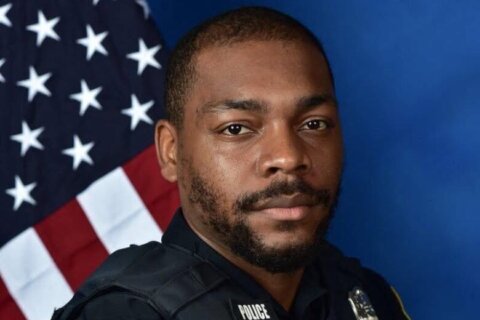WASHINGTON — Betty King was one of the first true believers in a candidate who was written off as a long shot. Now her voice is among those that recorded to tell a political tale that would affect the nation’s capital for decades to come.
She was among an army of D.C. residents who fought to see Marion Barry, then a brash young politician who shook up a political world that was used to a quieter style of politicking, win the 1978 race for mayor.
Now in her 80s and using a scooter to get around, King recently said in a voice that remains as unwavering as her political convictions: “If I live to be one thousand, I will never work on a political campaign that was so challenging, or so exciting, or so rewarding” as Barry’s 1978 race.
King’s is among the many voices recorded for an oral history that includes dozens of interviews of D.C. residents and political figures who were part of the groundbreaking election.
Transcripts and recordings of the oral history project can be accessed at the George Washington University’s Gelman Library website.
Jennifer King, the collections coordinator for the library, said, “You’re going to hear the history of the campaign. It’s a seminal event, and everyone’s talking about that from their different perspectives.”
King remembered that after Barry’s victory, pollsters asked how they and the media could have gotten their predictions so wrong. In a bit of history that could provide lessons for aspiring politicians, King recalls Barry telling them, “you were polling habitual voters.” Barry went after those who had never participated, and those who hadn’t registered.
Cora Masters Barry, Barry’s widow, attended the announcement of access to the oral history archives at the John S. Wilson District Building on Monday, and said, “It’s important, because [otherwise] the history just dies.”
Julius Hobson Jr., a senior policy adviser at Polsinelli and an adjunct professor at George Washington University, says there’s great historical value in the recordings: “People can tell you what happened, day by day. And that’s important to understand.” Hobson said the archives tell a story that goes beyond a political campaign: “It’s also about the times, the culture, the atmosphere. And all of that comes through in all the interviews.”
Barry’s supporters fought long and hard to increase the District’s voice on Capitol Hill. And the push for self-determination, in the form of a fight for statehood, continues.
King says young people who make the District of Columbia their home should not be discouraged by the District’s lack of representation in Congress. “One day,” she said, Congress will see “That it is immoral, illegal, for there not to be self-government for the District of Columbia.”
Cora Masters Barry agrees: “We’ll get there. We’re much farther than we were.”







